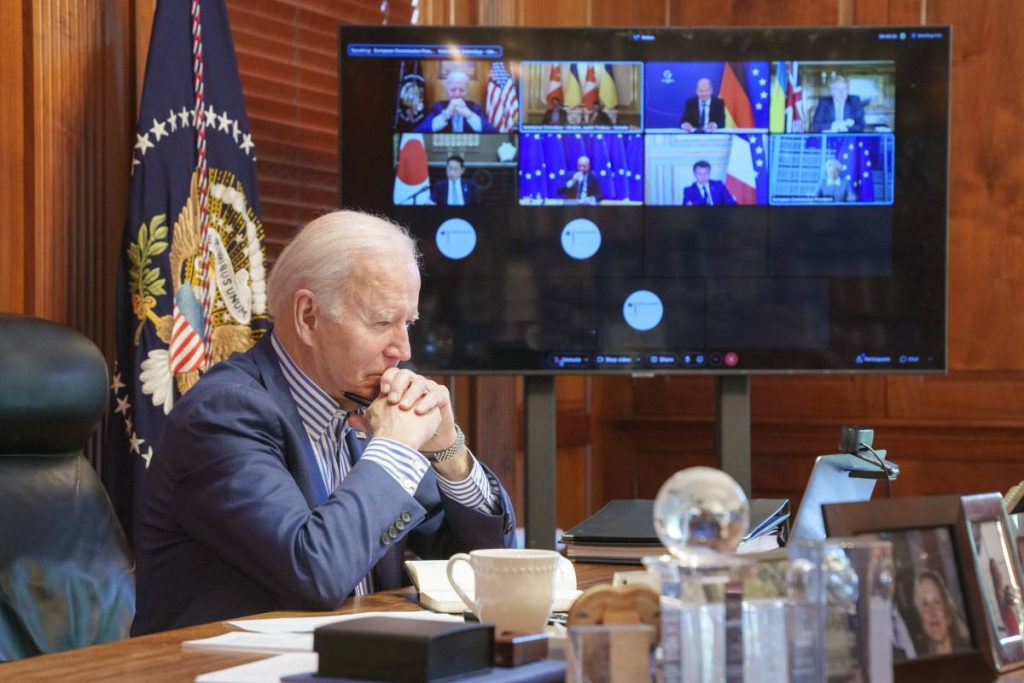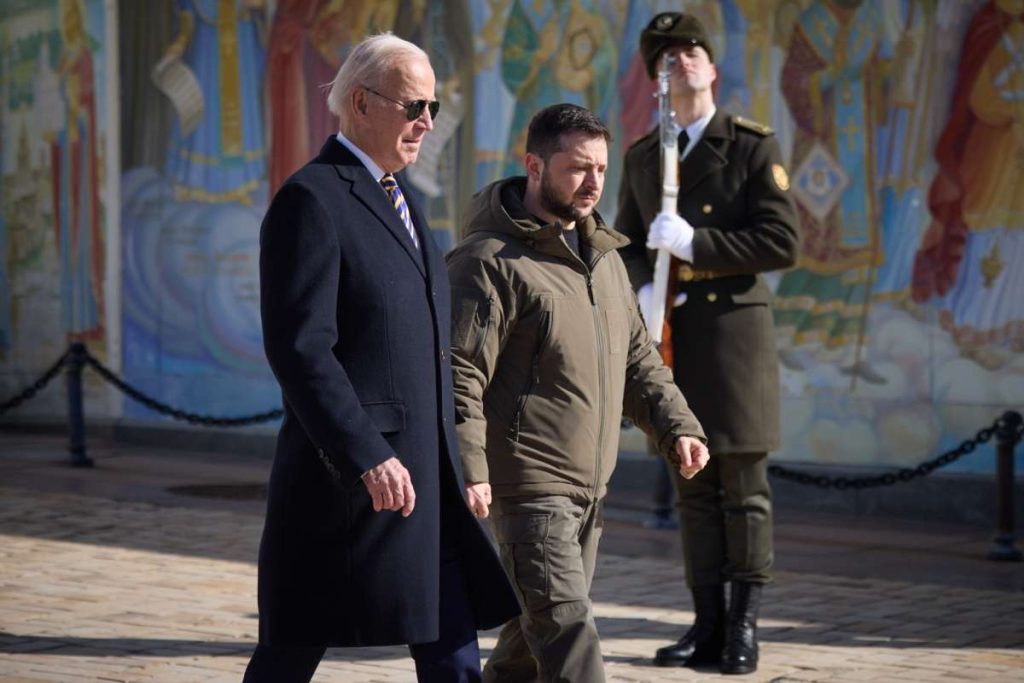
There’s also considerable doubt that diplomats from mostly Western democracies can find ways to influence, let alone stop, authoritarian nations …reports Asian Lite News
Russian threats to nuke Ukraine. China’s belligerent military moves around rival Taiwan. North Korea’s unprecedented run of missile testing.
The top diplomats from some of the world’s most powerful democracies will have plenty to discuss when they gather in the hot spring resort town of Karuizawa on Sunday for the so-called Group of Seven foreign ministers’ meeting.
Some believe that with the weakening of the United Nations, amid Russian and Chinese intransigence on the Security Council, global forums like the G7 are even more important. But there’s also considerable doubt that diplomats from mostly Western democracies can find ways to influence, let alone stop, authoritarian nations that are more and more willing to use violence, or its threat, to pursue their interests.
Besides the global hotspots, foreign ministers from Japan, the United States, the United Kingdom, France, Germany, Canada, Italy and the European Union are expected to discuss ways to improve human rights and democracy, and also issues important to poorer nations that may feel underrepresented by the focus on wealthy countries with stable governments.
The agenda will be dominated, however, by worries over Russia, China and North Korea, and an awareness of the unmistakable interconnectedness of these and other foreign policy headaches.
This year’s G7 meetings are the most important in the gathering’s history, given the pressing need to end Russia’s war in Ukraine and to stop a potential invasion of Taiwan by China, according to Yuichi Hosoya, an international politics professor at Keio University in Japan.

A broad concentration on nuclear issues was always going to be important at this year’s G7 talks, which culminate with the main leaders’ summit next month in Hiroshima, the target of the first nuclear bomb used in war.
The issue is more urgent amid fears that Russian President Vladimir Putin, as he becomes desperate over failures in Ukraine, might use a tactical nuclear weapon to win the war.
China is seen as one of the few nations that might influence Russia’s moves in Ukraine, and the foreign policy alignment between the world’s two largest autocracies will be a major focus in Karuizawa.
Chinese leader Xi Jinping, who appears increasingly emboldened to pursue his authoritarian impulses, recently traveled to Moscow and committed to deepen bilateral relations. That has “cast a shadow over hopes that Beijing would pressure Putin to draw down (his) conflict,” according to Stephen Nagy, an Asia expert at International Christian University in Tokyo.
During his visit to Beijing this month, French President Emmanuel Macron appealed to Xi to “bring Russia to its senses,” but received only a tepid response and additional calls for a political resolution.
Japan might use the G7 to announce a boost to its already substantial support of Ukraine, said Jeffrey Hall, a lecturer at Kanda University of International Studies.
“Japan’s leadership sees cooperation on security issues related to Ukraine as a possible avenue towards greater security cooperation in the Pacific,” Hall said.
China’s increasingly bold attempts to intimidate self-governing Taiwan were on full display when Beijing recently sent planes and ships to conduct a simulated encirclement of the island, which China claims as its territory. China’s broad military expansion, including a rapid jump in its nuclear warheads, a tougher line on its claim to the South China Sea and recent statements from Xi painting a scenario of impending confrontation have galvanized fears among G7 nations.
Beijing and Pyongyang are especially worried about Japanese military expansion, which they see as an attempt to “weaken both capitals’ efforts to rewrite the regional security architecture in their favor,” Nagy said.
Under Japanese Prime Minister Fumio Kishida, Tokyo has made a major break from its self-defense-only post-World War II principles, looking to acquire preemptive strike capabilities and cruise missiles to counter growing threats from North Korea, China and Russia.
While the G7 examines ways to manage China’s rise, Beijing is bolstering relations with countries from Pakistan to Argentina eager for trade and investment. This will massively expand China’s global footprint and challenge North American and European attempts to link investment to good governance and respect for human rights.
Kishida’s decision to invite Indian Prime Minister Narendra Modi to the leaders’ summit next month “signals Japan’s desire to strengthen security cooperation with one of China’s rivals. When Japan calls for a ‘Free and Open Indo-Pacific,’ it is calling for nations to stand against the way China and Russia conduct themselves internationally,” Hall said.

This year’s G7 talks are crucial in revitalizing diplomacy aimed at pressuring a hostile North Korea to return to disarmament negotiations, especially with a dysfunctional U.N. Security Council that’s divided between permanent members, according to Park Won Gon, a professor at Seoul’s Ewha Womans University.
Since last year North Korea has test-fired around 100 missiles, including intercontinental ballistic missiles that showed the potential of reaching the U.S. mainland and a variety of other shorter-range weapons that threaten South Korea and Japan.
Leader Kim Jong Un may be looking to use the global distraction of Russia’s war on Ukraine to expand a nuclear arsenal he sees as the strongest guarantee of his family’s dynastic rule.
Beijing and Moscow last year blocked a U.S.-led drive to tighten Security Council sanctions on North Korea over its major missile tests.
It’s unlikely that the Security Council will tighten sanctions even if North Korea conducts what would be its first nuclear test since 2017. But a meaningful punitive response could be generated by a network of unilateral sanctions imposed by the United States, its allies and “like-minded” European partners gathered at the G7, a tact similar to the way Washington pressures Moscow over its aggression in Ukraine, Park said.
“The importance of the G7 has been greatly strengthened as it’s obvious that the role and function of the U.N. Security Council is being unraveled by Russia and China and there is a need to find something new to replace it,” Park said.
ALSO READ: China records drop in arms exports in last 10 years


